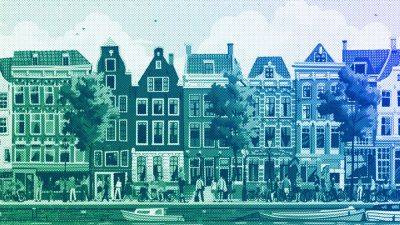EU Enlargement: How Albania's EU bid is driving economic change
Albania applied for EU membership more than 15 years ago and while there is no set date for its accession, the EU's latest progress report shows the Balkan country is on track to develop a functioning market economy capable of withstanding market forces and the competitive pressures that come with being inside the bloc.
To be accepted, candidate countries must meet several economic criteria. This includes demonstrating macroeconomic stability, high-quality economic governance, a proper labour market and sufficient infrastructure.
Albania's economy enjoyed a robust recovery in 2021, which continued into 2022. That's despite the triple shock of a major earthquake in 2019, the COVID-19 pandemic and the war in Ukraine.
Like other parts of Europe, inflation in Albania has eased recently but remains elevated amid tight labour markets. However, real GDP growth for this year is forecast at 3.3 per cent. So what's the driving force behind Albania's economy?
To help pave the way for Western Balkan countries to join the bloc, Brussels designed a stabilisation and association process. This sets out the political and economic objectives for the region.
A lack of convergence between countries in the Western Balkan region and the rest of Europe remains a major sticking point for allowing them EU membership. This currently sits at around 35 per cent of the EU's average levels.
Economic convergence is sometimes described as the 'catch-up effect' or the circumstances that enable a country with a slower level of development and economic growth to catch up with a 'wealthier' country.
In the case of Albania, the country is investing heavily in its construction and tourism industries in a bid to boost economic growth.
The country's railway








